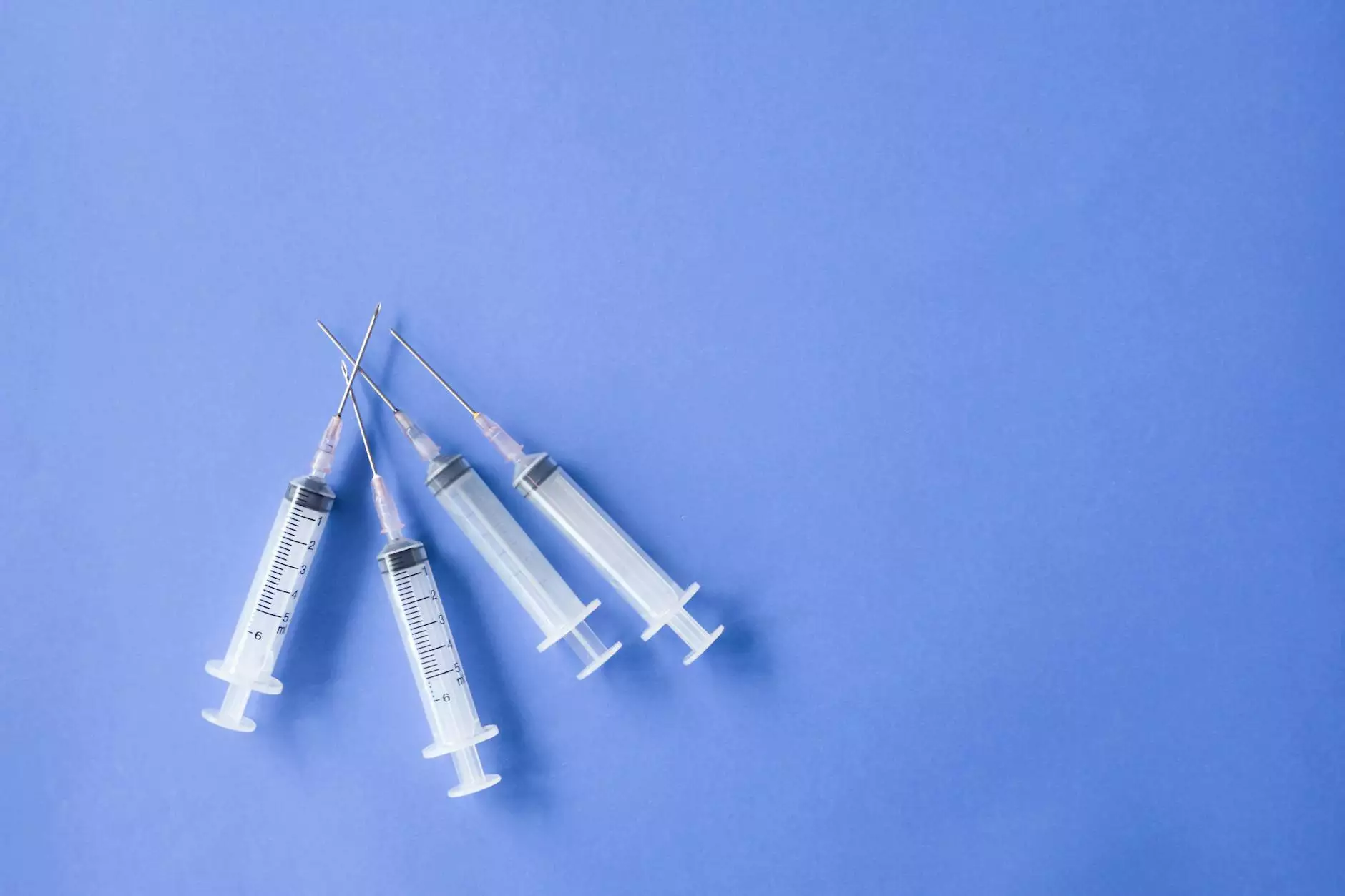Injections for Losing Weight: A Comprehensive Overview

In the modern quest for health and wellness, injections for losing weight have emerged as a promising solution for individuals struggling with weight management. As part of a broader movement towards effective health interventions, these injections offer an alternative to diet and exercise that can help some individuals reach their weight loss goals. In this article, we will delve into the various types of weight loss injections available, the science behind them, their effectiveness, potential side effects, and considerations for their use. Let’s embark on this informative journey to understand how these injectable solutions can impact your weight loss efforts.
Understanding Weight Loss Injections
Weight loss injections function by delivering substances that can help reduce appetite, increase metabolism, or trigger fat burning processes within the body. These injections are often prescribed by medical professionals and can be a part of a comprehensive weight loss plan. Some of the common types of weight loss injections include:
- HCG Injections: Human Chorionic Gonadotropin (HCG) is a hormone that has gained popularity in the weight loss community. The idea behind HCG injections is that they can help suppress appetite and facilitate the mobilization of fat stores.
- GLP-1 Agonists: Medications like Liraglutide (Saxenda) are designed to mimic the effects of the GLP-1 hormone, which regulates appetite and can slow gastric emptying, thereby promoting a feeling of fullness.
- B12 Injections: Vitamin B12 plays a critical role in metabolism. B12 injections are believed to boost energy levels and enhance fat burning capability, although scientific backing varies.
- Phentermine: This prescription medication acts as an appetite suppressant, affecting the central nervous system to assist in weight loss when combined with exercise and a healthy diet.
The Science Behind Weight Loss Injections
The effectiveness of injections for losing weight generally relies on the mechanisms of action of the substances they contain. Here’s a closer look at how some of these injections work:
HCG Injections
HCG injections have been a topic of controversy within the weight loss community. Supporters claim that HCG can help reduce fat stores while preserving muscle mass. The injections are often used in conjunction with a very low-calorie diet. However, research regarding their efficacy is mixed, and it’s essential to approach this treatment under medical supervision.
GLP-1 Agonists
GLP-1 agonists, such as Liraglutide, have shown more robust evidence supporting their use. They work by enhancing insulin secretion, slowing gastric emptying, and reducing hunger. Clinical trials have indicated significant weight loss results in individuals using these medications, making them a valuable tool for those with obesity or overweight issues.
B12 Injections
While B12 is not primarily recognized for weight loss, some believe that it can support energy levels necessary for maintaining an active lifestyle. Research indicates that B12 injections can help those who are deficient in this vitamin; however, it’s crucial to note that they should not be considered a sole weight loss solution.
Phentermine
Phentermine is a well-known appetite suppressant that affects neurotransmitters in the brain to reduce hunger. Its usage is generally intended for short-term management of obesity, and it’s typically advised as part of a broader weight loss program, combining dietary changes and physical activity.
Effectiveness of Injections for Losing Weight
The effectiveness of weight loss injections can vary from person to person. Several factors influence outcomes, including individual physiology, adherence to recommended dietary plans, and lifestyle changes. Here are some insights into the effectiveness of these injections:
- HCG Injections: Many users report significant initial weight loss; however, long-term sustainability remains a challenge, and they often regain weight post-treatment.
- GLP-1 Agonists: Clinical studies have demonstrated significant weight loss and improvements in overall metabolic health over extended periods, making them a reliable option.
- B12 Injections: Users often report increased energy levels, but direct evidence linking B12 injections to substantial weight loss is limited.
- Phentermine: Patients have seen success with phentermine for weight management, although it’s typically recommended for short durations to avoid dependency.
Potential Side Effects of Weight Loss Injections
While injections for losing weight can be effective, they are not without risks. Understanding the potential side effects is essential for making informed decisions. Common side effects associated with various weight loss injections may include:
HCG Injections:
- Injection site reactions (pain, swelling, or redness).
- Headaches and mood swings.
- Potential hormonal imbalances, headaches, or fatigue.
GLP-1 Agonists:
- Nausea and gastrointestinal discomfort.
- Risk of pancreatitis (in rare cases).
- Possible injection site reactions.
B12 Injections:
- Commonly considered safe; however, allergic reactions may occur.
- Mild side effects may include pain at the injection site and mild diarrhea.
Phentermine:
- Increased heart rate and blood pressure.
- Potential insomnia or anxiety.
- Dependency or withdrawal symptoms may occur with prolonged use.
How to Safely Use Weight Loss Injections
Given the potential benefits and risks of injections for losing weight, it is crucial to approach their usage thoughtfully. Here are some recommendations for safe and effective use:
- Consult with a Healthcare Professional: Before starting any weight loss injection, it is important to consult with a qualified healthcare provider to determine if it is appropriate for your individual health needs.
- Combined Approach: Use injections as part of a comprehensive weight loss plan that includes dietary changes and physical activity for optimal results.
- Monitor Side Effects: Be vigilant about monitoring any adverse effects and report them to your healthcare provider immediately.
- Regular Follow-ups: Maintain regular check-ins with your healthcare provider to gauge progress and make any necessary adjustments to your treatment plan.
Real-Life Experiences and Success Stories
Many individuals have turned to injections for losing weight and have shared their success stories. These personal experiences can provide insight and motivation for others considering the same route. Here are a few notable stories:
Sarah's Journey with GLP-1 Agonists
Sarah, a 34-year-old mother of two, struggled with her weight after her pregnancies. After consulting her doctor, she was prescribed a GLP-1 agonist as part of her weight management plan. Within six months, Sarah lost over 30 pounds. She reported feeling less hungry and more energetic, allowing her to engage in regular workouts that she once found daunting.
Mark's Experience with HCG Injections
Mark began HCG injections alongside a very low-calorie diet and was amazed to lose 25 pounds in just four weeks. However, he learned the importance of transitioning to a healthier lifestyle post-injection to maintain his results, which proved to be a challenge.
Conclusion: Making Informed Decisions about Weight Loss Injections
In conclusion, injections for losing weight can serve as a beneficial adjunct to traditional weight loss methods when implemented under medical supervision. They hold the potential to ignite the weight loss journey for those who have struggled with diet and exercise alone. However, it is crucial to weigh the benefits against the risks, monitor outcomes, and adopt a holistic approach that includes dietary changes and aerobic activity.
Whether you explore HCG injections, GLP-1 agonists, B12 shots, or phentermine, remember that the cornerstone of effective weight loss is a sustainable lifestyle. Engaging in regular physical activity, adopting healthier eating habits, and seeking professional guidance can pave the way for your weight loss success.









